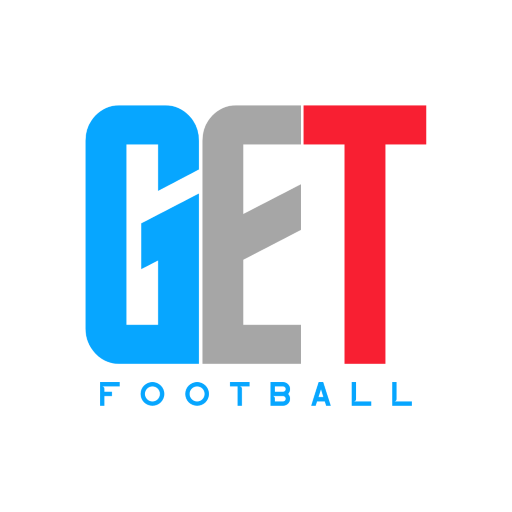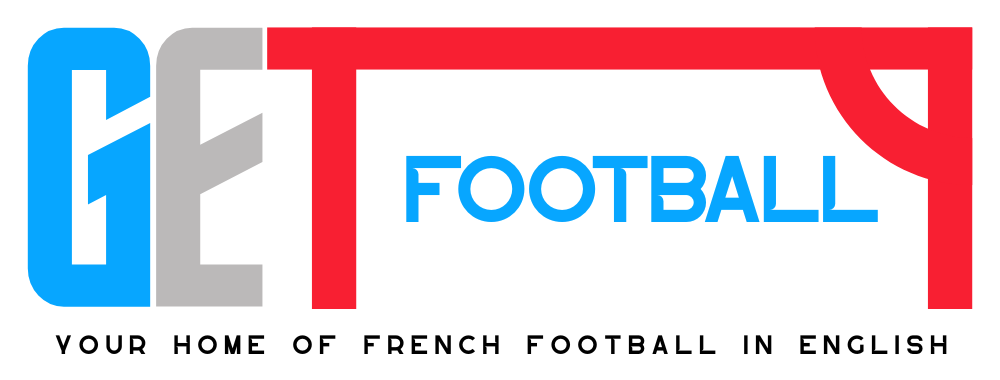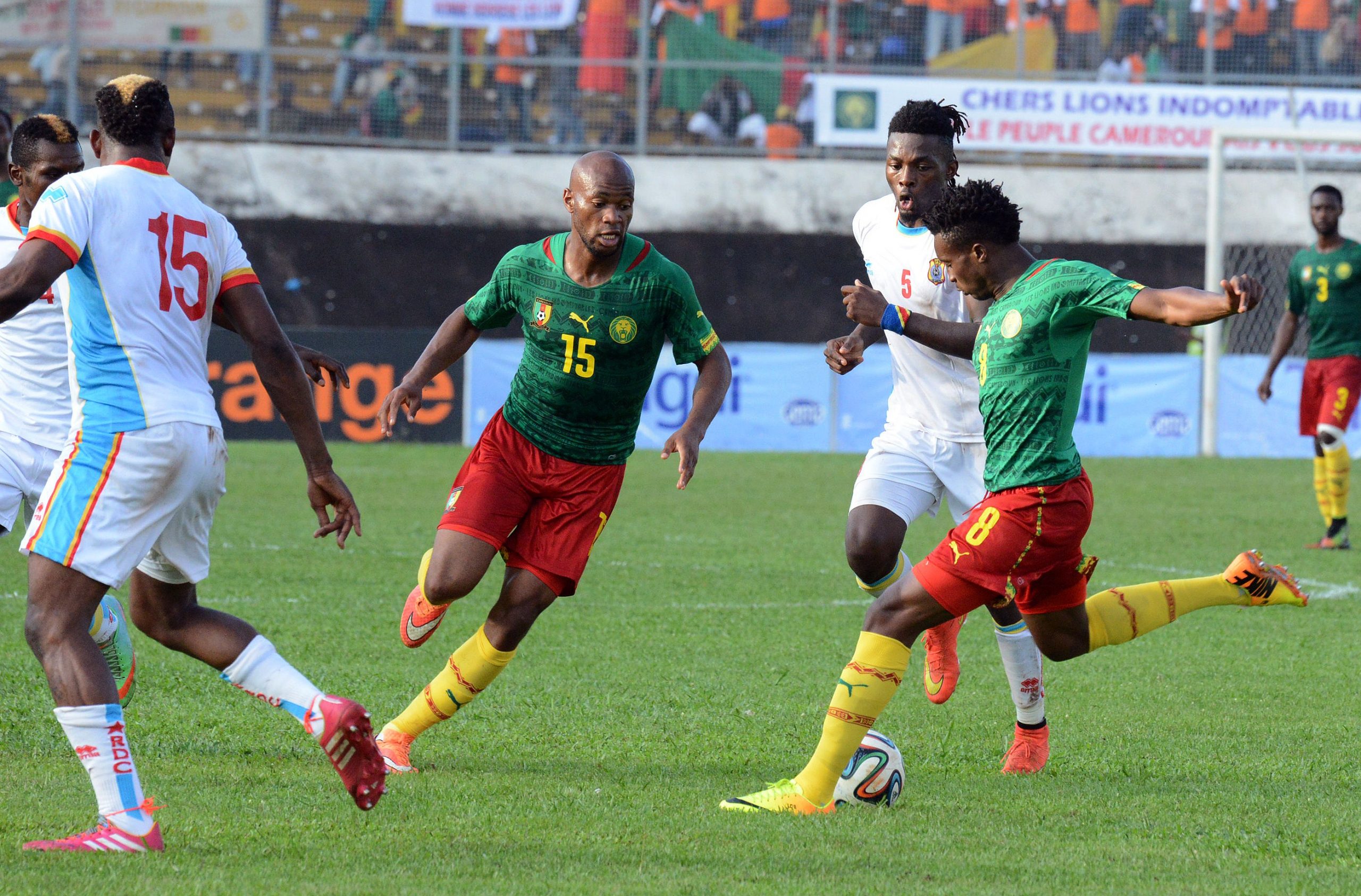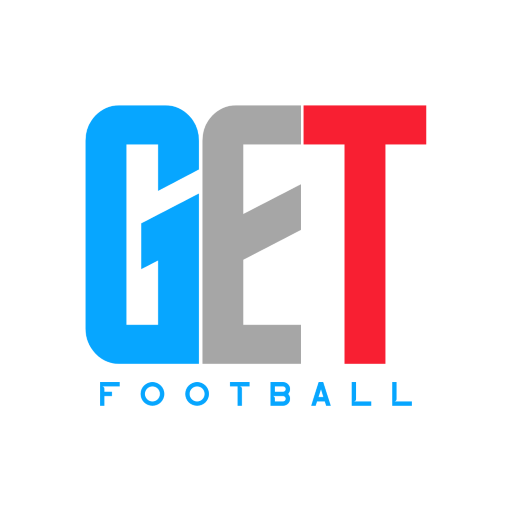31-year-old midfielder Distel Zola sat back down with Get French Football News to discuss his new adventure in the United States with El Paso Locomotive. The DR Congo international has enjoyed a storied career that has included spells at Nancy, Monaco, Le Havre, Samsunspor and Châteauroux.
His new side currently competes in the American 2nd division.
You’re starting a new chapter of your career in the USA, what are your expectations?
I’m going to be discovering a new league, people had talked to me about it and it’s a country I really wanted to play in. I was always dreaming of coming here – six years ago, my wife and I told ourselves that we had to go to the USA one day. Now it’s happened, and it’s great.
Is there a particular aspect of going to play in America which won you over?
As Europeans, we’ve all got the American dream in mind. I’m lucky to have had the chance, among so many other footballers, to come here. Being able to bring my family here also makes me proud – this was a family project, with my kids in mind. We’re on the border with Mexico so they can learn both Spanish and English, those are the languages they have in school. On a human level, I’m proud to be able to bring my family here, in good conditions.
The club’s project was very appealing too. When I first got the call from the coach, he explained his style of play to me, and how it was based on transitions from defence to attack. That really appealed to me.
Football is a sport that’s growing in popularity in the US, is that your feeling since you’ve been there?
It’s growing here, especially since the World Cup after Qatar will be held in America. You can really feel that it’s growing, and I think it’s a great thing. El Paso have only been around for a year, and it’s a project where I want to be one of the pioneers and grow alongside the club. The coach is quite young, he’s only 34, and he’s just starting out. He has a strong character and I want to be a part of his project here and follow him – I know he has a lot of ambition – to go up to the MLS.
Personally, I haven’t come here for a holiday – I want to have a foot here in the USA and then one day make it to the MLS. That’s something I keep in the back of my head and that I’m working for.
So do you see yourself staying there over the long-term?
Yes, I’ve come here for the short and the long term.
What differences have you noticed between the American and European approaches to football?
Our coach is from England, so he’s brought over a bit of an English football culture with him. For me not much has changed, since we’re working on intensity and the transition between attack and defence – he is inspired by Liverpool’s style of play. I haven’t had the feeling that there’s a gap in quality, despite what we might think in Europe about football here. You also have to be physically prepared, because what they want is athletes. I was shocked when I arrived, because you really have to be at the top of your game physically to be able to deal with expectations. People might think of this as some sort of holiday, but it’s really not.
You might say they prioritise athleticism over technique, then.
That’s it, they’re a lot more focused on physical work. What they are trying to do is create athletes. When you look at the teams we play against, they run a lot and they’re great athletes, even if in terms of technique they’re not as good. Here, there’s a culture of athletes.
El Paso has quite an international squad, how are you finding yourself as part of that?
It’s a great group of players. It’s a real melting pot – there’s some Europeans, the captain Chiró N’Toko is Congolese like me, and then there’s Alexy Bosetti. There’s also a large Hispanic contingent. As someone who has travelled a lot, it’s not something that bothers me – there were a lot of Spanish speakers back in the Monaco dressing room too. It’s a language I learnt at school so I know the basics. I think I’m settling well into it, it’s a good mix between Spanish and English. It’s very enriching, I learn something new every day in the dressing room.
What was your time playing in Turkey like?
The first year was a bit difficult in footballing terms – once I got there they had changed managers and things became complicated. In the second year I played more, so you could say I finished strongly. Although it’s a shame that I was in a way penalised in my first year, because when the new coaches arrived they were a bit reticent to play me and didn’t trust me. Then when Engin Korukir came in, he put a lot of faith in me and things went better. I would have wanted to go on and play in the Superlig, but things didn’t turn out that way. I really grew mentally though, I learnt a new language, and I would say that it moulded me.
It’s all a part of the process. Maybe if I hadn’t played in Turkey, coming here I would have had more trouble, but I have that experience now. When I’m playing in France, I’m in a bit of a comfort zone where I have my family there with me, the coach speaks French, and I know that if there’s a problem, it’s easier to solve. When you’re abroad, you have to get by yourself, there are aspects where you know you have to work harder. You build up your mentality, and that’s a good thing.
You then spent a year as a free agent, how did you experience that?
That was also a great challenge. It was the first time I’d found myself in that situation, and thankfully I had my wife and two children with me, they really kept me going and helped me. At the time I was living in Boulogne-Billancourt, so I trained with the local side, as well as having my personal trainer. During this time I was also looking at possible new career paths with the UNFP [footballers’ syndicate in France].
I didn’t give in mentally, though. When you’re 29 and without a club, you might start to think that it might be the end of the road, but I always believed in myself and I tried to give myself the tools to carry on by training with Boulogne-Billancourt and having my own fitness trainer. It might have come at a cost at the time, but today I know that it’s paid off. I tried to set things in motion by myself – I had agents, but I was using my own contacts as well.
There was a sense of persistence, then.
That’s right, perseverance is one of my best qualities. At Monaco I did my ACL twice – first on my right leg, then six months later on the left one. From then on I knew that I had to persevere because things wouldn’t be easy, but I knew that by working I would be able to make it.
Did you have any other offers on the table before going to the USA?
I was relegated with Tours, but I was also able to get some playing time and put in some good performances. There were projects from leagues like the Romanian one, but I’d already played in Turkey and I didn’t want to embark on an experience like that, especially as I have two kids now. I have responsibilities, and what I wanted was a stable project, and that’s what I’ve found here.
There were also some offers from the National [French 3rd tier], but I told myself that if I had the chance to play abroad – especially in the USA – I would jump on it. It’s really a matter of fate, because I had signed a two-year contract at Tours, but we went down so I was freed from my contract. The first contact made with El Paso was at the end of July, and then I signed the contract at the end of October. So if we hadn’t gone down, I might not have had the opportunity to come and play here. It’s a positive turn of events, and it shows that good things can come out of misfortune.
You’ve were capped by DR Congo in 2015, is it an ambition of yours to get back into the national side?
As long as I haven’t retired, I’m always eligible to play for the national team. I wouldn’t say I’m always thinking about it, but it’s in the back of my mind. It’s one of my objectives, just like playing in the MLS. But right now, the priority is my club. Chronologically speaking, first I have to perform well with them before I can aspire to be called up.
Do you have any personal objectives for the season to come?
I’ve set myself a few – I’d like to score five goals and make five assists, that would be great as a start. Here, I’m playing further up the pitch. I have the ability to make runs forward, so the coach is playing me as a central midfielder in a diamond formation. Back in France I was always told to stay just in front of the defence, but here I can play more in a box-to-box style. I play with a high intensity and I often finish my runs in the penalty box, and that’s where statistically the most goals are scored.
So I’m really going to concentrate on trying to score goals. I’m off to a good start, since we played our first friendly a few days ago and I scored our first goal. I followed the play, got into the box and finished the move off coolly.
From the way the coach is using me, how I’ve been welcomed and seeing the facilities here, this really feels like a new chapter for me. I feel reinvigorated, it’s as if I’m 20 again and I’m starting a new career.
You’ve said in the past that your departure from Le Havre was motivated by Christophe Maillol’s arrival, would you have stayed had things turned out differently?
Absolutely, I think I would have stayed. When they arrived, things were very unclear – there was supposed to be some American investor with them, I think, but then that turned out to be false. Then they ‘cleaned up’ the squad, but otherwise I would have remained there.
At Le Havre you played with Riyad Mahrez and Benjamin Mendy, players who would go on to become stars on the world stage. Could you tell at the time that they were going to make it?
Yes, you could tell. Already at the time they had the traits of top level footballers. They were also young, though. For Riyad, I think arriving in England is what changed things for him, because he had the ability, but then he was part of a great team [Leicester] with a top coach, and from there he was able to progress and make the most of his talent. They were both able to get the most out of their talent, and they’ve reaped the benefits of that.
That said, what Riyad is doing today is what we were seeing that at Le Havre as well. The difference is that at the end of a run, he might not have had as much confidence when shooting. Now, with all the work he’s put in physically and mentally, he’s stronger in every department, and it shows. Nowadays, after a dribble his shots will be on target or go in – having spoken to him recently, he’s told me that the difference is there.
He knows that there’s a lot of competition, from Agüero and the like, and that he has to be finishing games with at least an assist or a goal. He’s really demanding the highest level of himself because that’s the level he plays at now. That’s the difference between a decent level and a high level, you always have to be performing – it’s unforgiving.










